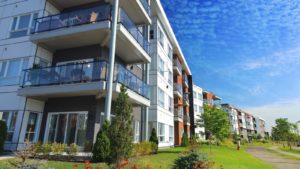
In the current digital world, ensuring the security of internet connections is crucial, especially in Multi-Unit Units (MDUs) such as flat complexes and condo . Residents in these shared environments often connect to the identical connection, which can make them susceptible to online dangers. One effective way to enhance internet safety in MDUs is through the strategic implementation of Virtual Secure Networks (VPNs). VPNs create a secure link over the web, enabling users to protect their personal data and preserve confidentiality while browsing.
A VPN works by coding the data that travels between a client’s device and the internet. This means that even if someone attempts to capture the data, they will not be able to read it. For residents in MDUs, employing a VPN can considerably reduce the risk of data breaches and unauthorized entry to private data. By coding their online traffic, users can browse the web, stream videos, and communicate digitally without concern about hackers or other harmful actors. This added layer of security is particularly crucial in settings where numerous people share the same internet connection.
In protecting personal information, VPNs can also assist tenants reach material that may be limited in their region. Many broadcasting platforms and websites restrict entry based on geographic location. secure access control systems for mdu By using a VPN, individuals can link to nodes in different nations, allowing them to bypass these barriers and access a broader variety of internet material. This aspect can be especially attractive to inhabitants who want to access international news, entertainment, or educational resources that may not be available in their region.
Adopting VPNs in MDUs can also foster a sense of community and trust among residents. When everyone in a building uses a VPN, it creates a more secure environment for sharing information and resources. Residents can feel more comfortable using shared networks for activities like online banking or shopping, knowing that their information is safe. Additionally, building administrators can promote the adoption of VPNs as part of their comprehensive security plan, aiding to establish a more secure residential environment for everyone.
To conclude, the tactical implementation of VPNs in Multi-Dwelling Units is an effective way to enhance online security for residents. By coding information, providing entry to limited content, and cultivating a feeling of community, VPNs provide numerous benefits that can improve the online interaction for all. As cyber threats persist to develop, it is essential for inhabitants and building managers to emphasize online security and evaluate the benefits that VPNs can offer. Adopting this solution can lead to a more secure, more integrated living space for all.